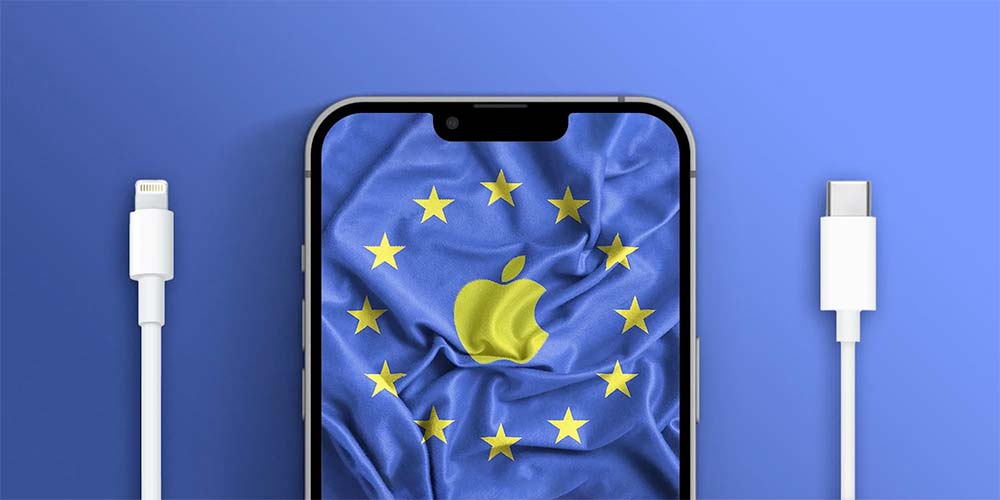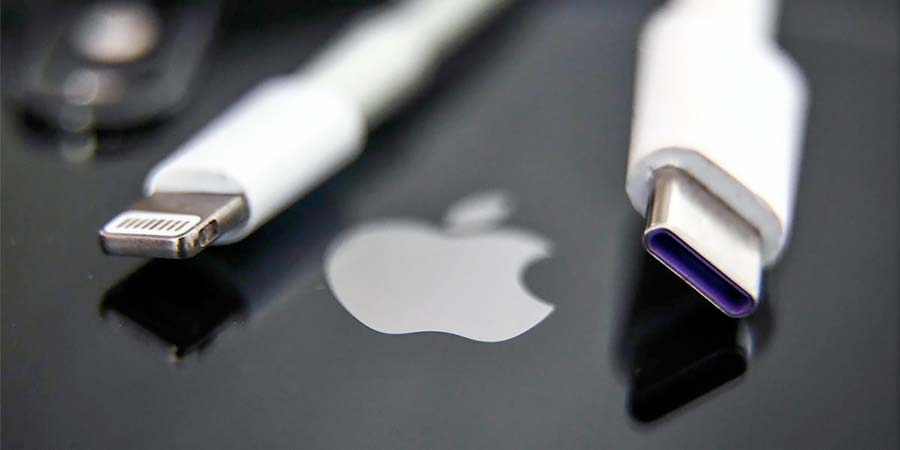Apple may be planning to limit data transfer and charging speed on USB-C ports used in its devices, by introducing MFI certification!
Earlier : Apple Forced To Adopt USB-C Port!
Apple has been hesitant about moving to the superior USB-C port for years, limiting it to Mac computers and iPad tablets.
The 12-inch MacBook was the first Mac computer to get USB-C in 2015, while the 11-inch and 12.9-inch iPad Pro tablets made the switch from Lighting to USB-C in 2018. However, Apple stubbornly refused to migrate its iPhones to USB-C.
The choice to stick with their proprietary Lightning port was taken out of their hands on October 4, 2022, when the European Parliament voted decisively to adopt the USB-C (USB Type C) port as the new standard for all portable devices.
By the end of 2024, all portable devices sold in the EU must come with a USB-C charging port. This directive is more or less directed at Apple, which is the only brand that continues to use its own proprietary Lighting connector.
Read more : EU Orders All Brands To Use USB-C, Including Apple!

Apple MFI plan to limit speed, power on USB-C leaked!
Now that the EU is firmly forcing everyone to use USB-C, Apple will start using the USB Type C port in its upcoming iPhone 15 models.
However, Apple apparently isn’t going to give up its lucrative side gig of selling its users MFI (Made for iPhone) cables and accessories at exorbitant prices.
According to ShrimpApplePro, who accurately leaked on the iPhone 14, Apple will introduce MFI for its USB-C cables and accessories.
And even worse – cables that lack MFI certification will have their data and charging speeds limited.
Yeah usb-c with MFI is happening
Foxconn already in mass production accessories like EarPods and cables
Cables w no MFI will be software limited in data and charging speed
MFI-certified cables have a small authenticator chip to verify that they are “certified” to work with Apple devices. If you use cables that lack this authenticator chip, you will get the “This accessory is not supported” warning on your Apple device.
Apple gets paid for every authenticator chip, so MFI cables and accessories are priced at a premium, even if they work just as well as non-MFI cables and accessories.

Apple is already expected to limit the iPhone 15 base model, and iPhone 15 Plus, to USB 2.0 data transfer speeds of up to 480 Mbps (60 MB/s), while Pro models will get the much higher transfer rates of 20 Gbps (USB-C 3.2) or even 40 Gbps (Thunderbolt 3).
People may not bat an eye at Apple limiting data transfer speeds to differentiate their Pro models from the non-Pro models, but limiting battery recharging speeds for non-MFI cables should ruffle some feathers. After all, there is technically no good reason why Apple cannot allow their devices to benefit from faster charging using non-MFI cables.
Naturally, Apple benefits financially from introducing MFI for USB-C. It will force Apple users to pay the notorious “Apple tax” on top of the “Apple premium” they paid for their Apple devices.
Imagine if Apple introduces MFI for USB-C and phases that in for future Mac computers and iPad tablets, as well as the upcoming iPhone 15 smartphones. Even those who have been happily using regular, non-MFI USB-C cables will have to switch them to MFI cables, and for what?
There is really no discernible benefit for Apple users to use MFI-certified cables over regular USB-C cables. It’s not like they will give your Apple devices magical powers. If there is any reduction in transfer rate or charging speed, it will only happen because Apple intentionally chose to make it so.
Of course, this leak may turn out to be true, and Apple may not be quite so evil as to foist the MFI tax on its loyal users. But I fear that Apple believes its users are more loyal than discerning, and will yet again, quietly pay for MFI cables just because Apple said so.
Please Support My Work!
 Support my work through a bank transfer / PayPal / credit card!
Support my work through a bank transfer / PayPal / credit card!
Name : Adrian Wong
Bank Transfer : CIMB 7064555917 (Swift Code : CIBBMYKL)
Credit Card / Paypal : https://paypal.me/techarp
Dr. Adrian Wong has been writing about tech and science since 1997, even publishing a book with Prentice Hall called Breaking Through The BIOS Barrier (ISBN 978-0131455368) while in medical school.
He continues to devote countless hours every day writing about tech, medicine and science, in his pursuit of facts in a post-truth world.
Recommended Reading
Go Back To > Mobile | Tech ARP
Support Tech ARP!
Please support us by visiting our sponsors, participating in the Tech ARP Forums, or donating to our fund. Thank you!

